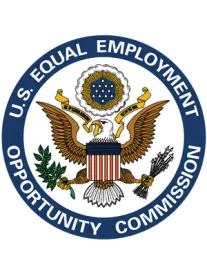With its victory in the Supreme Court last year, the U.S. Equal Employment Opportunity Commission (EEOC) appears poised to continue focusing on ensuring appropriate religious accommodations and combating religious discrimination in the workplace.
In June of last year, the Supreme Court, in an 8-1 decision, held that an employer violated Title VII when it failed to hire an applicant who wore a headscarf to her interview. The employer believed that the applicant wore the headscarf for religious purposes but never confirmed that with the applicant. Instead, the employer decided not to hire the applicant because the headscarf would violate the company's "Look Policy" that prohibited most headwear, religious or otherwise. The EEOC then sued the employer on behalf of the applicant, claiming that the employer’s refusal to hire the applicant violated Title VII.
The employer argued that an applicant cannot show intentional discrimination without the employer having "actual knowledge" of an applicant's need for an accommodation. The Supreme Court disagreed, stating that "the rule for disparate-treatment claims based on a failure to accommodate a religious practice is straightforward: An employer may not make an applicant’s religious practice, confirmed or otherwise, a factor in employment decisions." EEOC v. Abercrombie & Fitch Stores, Inc., 135 S. Ct. 2028 (2015).
As an example, the Supreme Court stated, "suppose that an employer thinks (though he does not know for certain) that a job applicant may be an orthodox Jew who will observe the Sabbath, and thus be unable to work on Saturdays. If the applicant actually requires an accommodation of that religious practice, and the employer's desire to avoid the prospective accommodation is a motivating factor in his decision, the employer violates Title VII."
Recently, the EEOC, in the wake of tragic events including the attacks in Paris and San Bernardino, California, issued a statement to address workplace discrimination issues against individuals who are, or are perceived to be, Muslim or Middle Eastern. In the statement, the EEOC encouraged all employers to "remain vigilant and to communicate their commitment to inclusive workplaces" to their employees at all levels of their organizations.
The EEOC also released two sets of question-and-answer documents—one for employers and one for employees—describing scenarios related to hiring and other employment decisions, harassment, religious accommodations and background investigations of individuals who are, or are perceived to be, Muslim or Middle Eastern. The EEOC encourages employers to remind their managers and employees that religious discrimination is not tolerated and to train (or retrain) employees involved in the hiring process about hiring standards that emphasize objective, job-related criteria. Additionally, the EEOC encourages employers to have a written confidential complaint mechanism for employees to report any perceived harassment. The guidance also reminds employers of the need to evaluate accommodation requests in an objective manner.
It bears noting that the EEOC stated that "[r]eactions in the workplace to world events demand increased efforts by employers to prevent discrimination." While there is no legal requirement that employers plan training around geopolitical developments—whether in Paris or in San Bernardino—the advice is sound. These issues are not going to fade away any time soon, and ignoring them or hoping that your workplace is immune to them is a recipe for problems down the road. Employers, instead, should take a proactive approach, educating and training their personnel to ensure lawful treatment of all employees, regardless of their religious beliefs.



 />i
/>i

